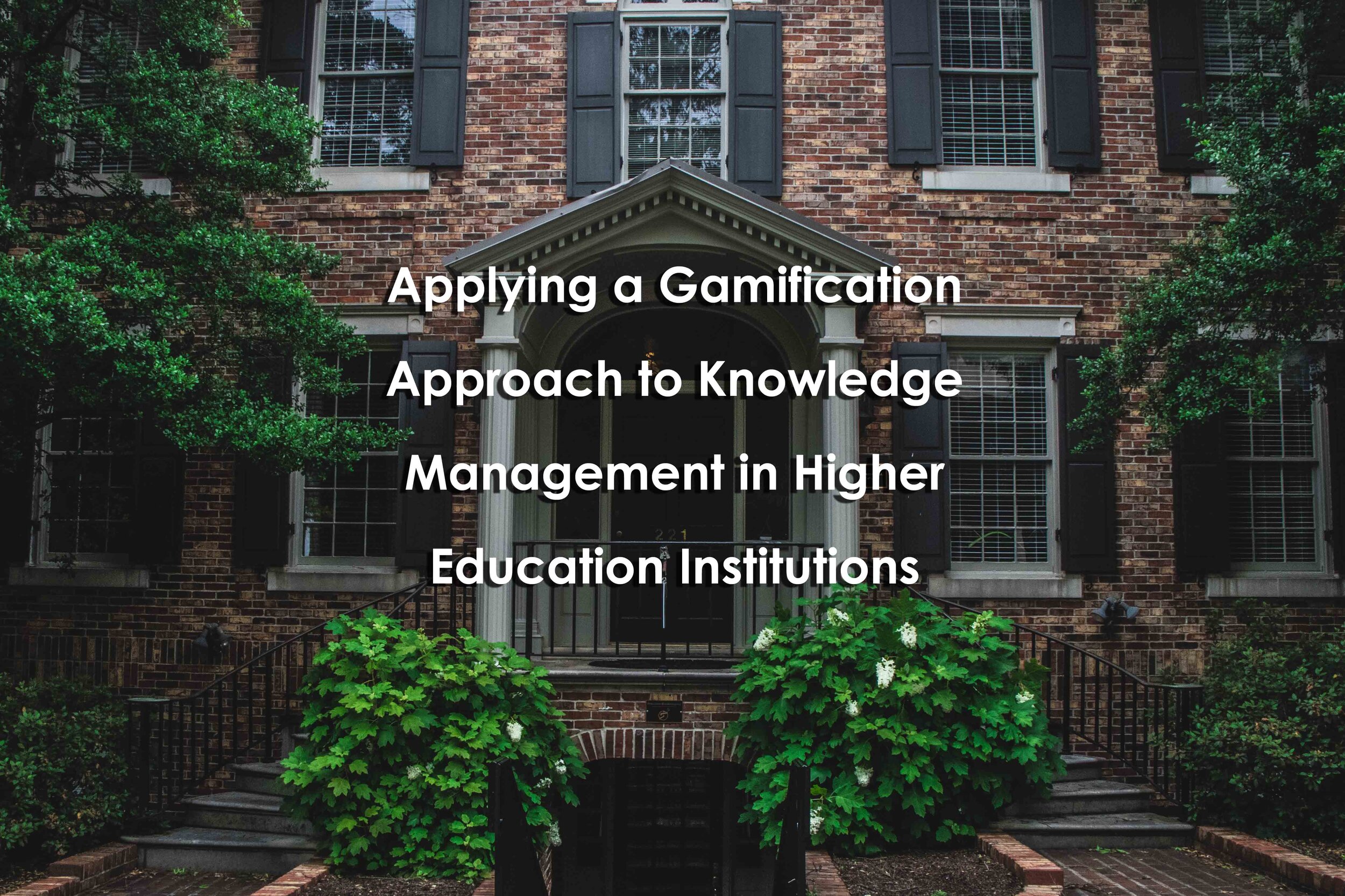Applying a Gamification Approach to Knowledge Management in Higher Education Institutions
Applying a Gamification Approach to Knowledge Management in Higher Education Institutions
Applying a Gamification Approach to Knowledge Management in Higher Education Institutions
Nouf Almujally & Mike Joy
Abstract
“Many universities still struggle with the issue of how to facilitate the sharing of knowledge gained by instructors and maximize the value gained from all available such knowledge assets. Poor Knowledge Sharing (KS) can deter the successful implementation of teaching expertise, and this can affect instructors' teaching performance and may result in lower levels of learner achievement than could otherwise be achieved. Therefore, there is a need to implement a knowledge management (KM) initiative that facilitates the sharing of teaching practices among university instructors. In order to address this issue, this paper proposes a comprehensive and practical Computer-based Teaching Practices Management System (TPMS) which aims to foster instructors' participation in KS practices by employing a gamification approach. A design science research methodology is adopted in order to understand what would drive instructors to share their knowledge; this information is used in order to map their behavior to system features. A qualitative evaluation of users' experiences of utilizing the proposed features shows that the instructors express satisfaction with the motivational affordances and feel that they were motivated to participate in knowledge sharing activities.”
Reference
Almujally, N., & Joy, M. (2020, July). Applying a Gamification Approach to Knowledge Management in Higher Education Institutions. In 2020 IEEE 44th Annual Computers, Software, and Applications Conference (COMPSAC) (pp. 455-459). IEEE. https://ieeexplore.ieee.org/abstract/document/9202778
Keywords
Design science, knowledge sharing, knowledge management system, higher education institutions, motivational affordance, user experience.

